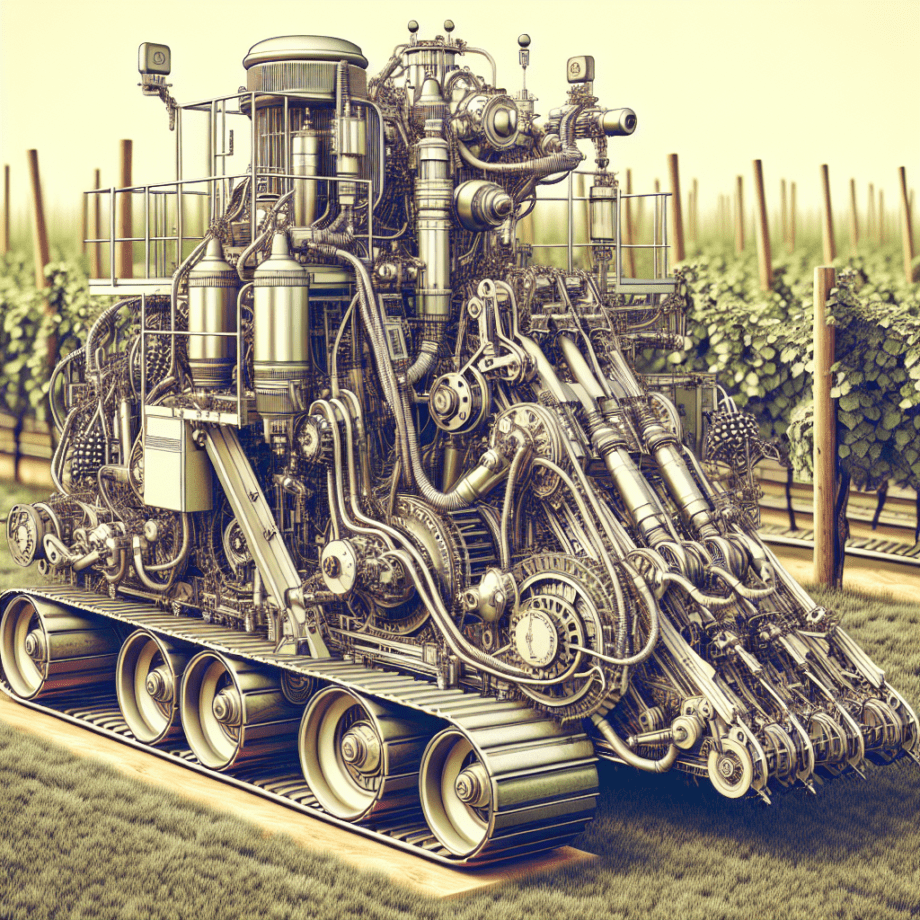Specialized machinery for vineyard and orchard farming has revolutionized the way these specific types of agriculture are managed. The unique requirements of vineyards and orchards necessitate equipment that can handle the delicate and labor-intensive tasks associated with growing grapes and fruit trees. This article delves into the various types of specialized machinery used in these fields, highlighting their features, benefits, and the technological advancements that have made them indispensable to modern farming.
Types of Specialized Machinery
Tractors and Carriers
Tractors and carriers designed for vineyards and orchards are typically more compact and maneuverable than standard agricultural tractors. These machines need to navigate narrow rows and tight spaces without damaging the plants. Some of the key features include:
- Narrow Width: These tractors are designed to fit between rows of vines or trees, minimizing the risk of damaging the crops.
- High Clearance: High ground clearance allows the tractor to pass over plants without causing harm.
- Four-Wheel Drive: Enhanced traction is crucial for operating on uneven terrain often found in vineyards and orchards.
Pruning Machines
Pruning is a critical task in both vineyards and orchards, essential for maintaining plant health and optimizing fruit production. Specialized pruning machines have been developed to automate this labor-intensive process. These machines can be mounted on tractors or operate as standalone units. Key features include:
- Precision Cutting: Advanced sensors and cutting mechanisms ensure precise pruning, which is vital for the health of the plants.
- Adjustable Settings: Operators can adjust the cutting height and angle to suit different plant varieties and growth stages.
- Safety Features: Built-in safety mechanisms protect both the operator and the plants from accidental damage.
Harvesting Equipment
Harvesting is another area where specialized machinery has made significant strides. Traditional hand-picking methods are labor-intensive and time-consuming. Modern harvesting machines are designed to efficiently and gently collect fruit without causing damage. Types of harvesting equipment include:
- Grape Harvesters: These machines use vibrating mechanisms to shake grapes off the vines, collecting them in bins for transport.
- Fruit Pickers: Designed for orchards, these machines can pick various types of fruit, such as apples, pears, and cherries, using gentle suction or mechanical arms.
- Sorting and Cleaning Units: Integrated systems that sort and clean the harvested fruit, ensuring only the best quality produce is processed further.
Technological Advancements
GPS and Precision Farming
One of the most significant technological advancements in vineyard and orchard farming is the integration of GPS and precision farming techniques. These technologies allow farmers to optimize their operations by providing detailed data on soil conditions, plant health, and weather patterns. Benefits include:
- Efficient Resource Use: Precision farming helps in the efficient use of water, fertilizers, and pesticides, reducing waste and environmental impact.
- Improved Crop Yields: By monitoring plant health and soil conditions, farmers can make informed decisions that lead to better crop yields.
- Reduced Labor Costs: Automation and precise control reduce the need for manual labor, lowering overall costs.
Automation and Robotics
Automation and robotics are increasingly being adopted in vineyard and orchard farming. These technologies are designed to handle repetitive and labor-intensive tasks, freeing up human labor for more complex activities. Examples include:
- Autonomous Tractors: These tractors can operate without human intervention, following pre-programmed routes and performing tasks such as plowing, planting, and spraying.
- Robotic Harvesters: Equipped with advanced sensors and AI, these robots can identify ripe fruit and pick it with precision, reducing damage and increasing efficiency.
- Automated Pruning Systems: These systems use machine learning algorithms to determine the best pruning strategy for each plant, ensuring optimal growth and fruit production.
Environmental and Economic Impact
Sustainability
The adoption of specialized machinery in vineyard and orchard farming has significant environmental benefits. By optimizing resource use and reducing waste, these technologies contribute to more sustainable farming practices. Key points include:
- Reduced Chemical Use: Precision application of fertilizers and pesticides minimizes the amount of chemicals released into the environment.
- Water Conservation: Efficient irrigation systems ensure that water is used judiciously, reducing the strain on local water resources.
- Lower Carbon Footprint: Automation and efficient machinery reduce the need for multiple passes over the fields, lowering fuel consumption and greenhouse gas emissions.
Economic Benefits
Investing in specialized machinery can be costly, but the long-term economic benefits often outweigh the initial expenses. These benefits include:
- Increased Productivity: Automation and precision farming techniques lead to higher crop yields and better-quality produce, increasing overall profitability.
- Labor Savings: Reducing the need for manual labor lowers operational costs, allowing farmers to allocate resources more effectively.
- Market Competitiveness: High-quality produce and efficient operations make farmers more competitive in the market, potentially leading to better prices and higher demand.
Conclusion
Specialized machinery for vineyard and orchard farming has transformed these agricultural sectors, making them more efficient, sustainable, and profitable. From compact tractors and advanced pruning machines to automated harvesters and precision farming technologies, these innovations are essential for modern farming. As technology continues to evolve, we can expect even more advancements that will further enhance the capabilities and benefits of specialized agricultural machinery.
